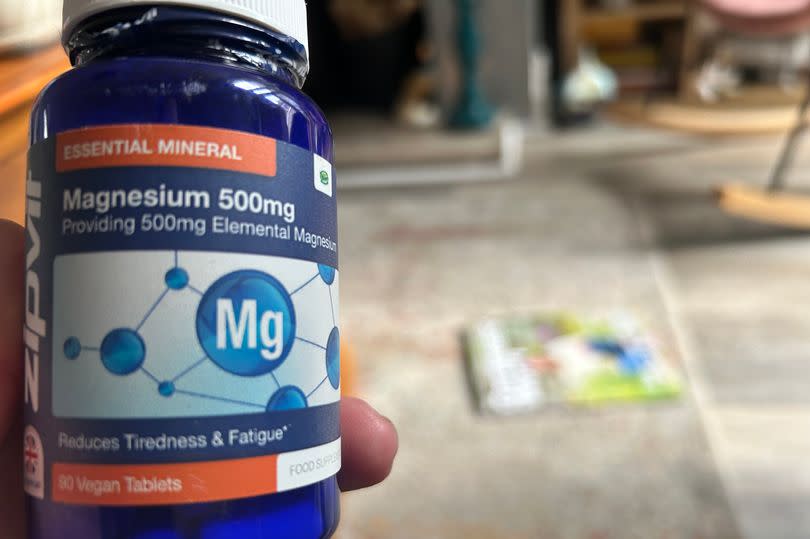I tried the latest supplement fad which claims to tackle tiredness

With more than a billion hashtags on TikTok the 'miracle mineral' magnesium has become the latest supplement to offer impressive benefits.
NHS statistics from last year show that unexplained tiredness is one of the top reasons that patients visit their GP and with studies estimating that more than half of people don't get the recommended amount of magnesium through their diet it's no wonder that its claimed ability to combat fatigue is tempting.
Our bodies need magnesium to make adenosine triphosphate (ATP), a molecule that gives our cells the energy they need to function and drive our metabolism. Without enough ATP, you'll feel less energetic.
READ MORE:
Paralysed puppy able to walk again thanks to 3D printer helped repair his spine
'Perfectly healthy' girl, 16, had 8lb tumour filled with hair and teeth inside stomach
As well as energy, magnesium is central to the nervous system and neurotransmitter function, which have an effect on sleep and relaxation. Studies have shown evidence to suggest that high magnesium intake was associated with better quality sleep.
So with that in mind, and as someone who constantly feels like they aren't getting enough sleep, I decided to give it a go albeit with a healthy amount of scepticism.
I regularly find myself waking up during the night for no known reason. And, stupidly I know, I often end up scrolling through the news on my phone before managing to drift back off to sleep.
I've always considered myself as being more of a night owl than an early bird and at weekends I can happily lie in until the early afternoon.
I bought a three-month supply of 500mg magnesium tablets on Amazon for £7.17. In the current Holland and Barrett sale you can get 90 magnesium and zinc tablets for £3.80.
The suggested time to take a magnesium supplement seems to vary depending on which studies you read. Some say to take it an hour or two before bedtime while others claim that because it's absorbed orally it can be taken at any time.
I decided to take my tablets at around 8pm at night. I noticed next to no change during the first week but I struggled to find an alternative explanation for what I started to notice after the second week.
I would wake up in the mornings, at around 7.30am, and where normally I would snooze my alarm at least three or four times before dragging myself out of bed I found that, once I was up, I no longer felt that I could easily fall back asleep if I crawled back under the covers.
I also started to find that I was going to bed earlier at night - and on a couple of occasions I even went at the same time as my nine-year-old daughter.
I'd love to think that taking magnesium helped with my sleep. I suspect it has but this was no scientific study. And of course anyone considering taking any supplements should always check with their GP first - especially if you take any prescribed medication.
But if, like me, you're becoming frustrated at your levels of fatigue, it's definitely worth a try. I'll certainly be finishing the 90-tablet bottle to see if my improved sleep continues.

 Yahoo News
Yahoo News 
